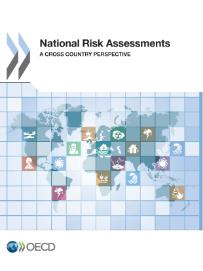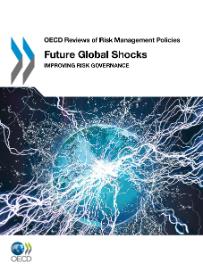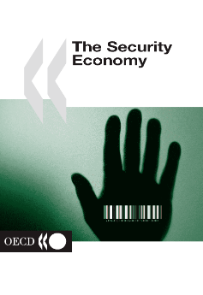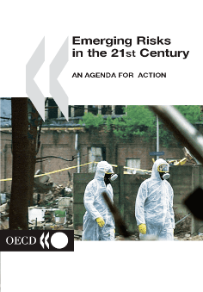Gestion des risques
Critical Emerging Risks
-203x141.png) |
Governance of Emerging Critical RisksThis OECD High Level Risk Forum workshop brought together experts to discuss how to strengthen management of ‘Emerging Critical Risks’. The workshop discussed how to monitor underlying factors that drive changes in the intensity or frequency of emerging critical risks, and how to bring to bear capabilities and attention to manage these risks before they manifest themselves via shock events. The workshop was organised in collaboration with the OECD Strategic Foresight Unit in order to identify synergies with its research on ‘Existential Risks’. More information on the workshop. |
 |
National Risk AssessmentsA Cross Country PerspectiveThis report provides a synthetic view of national risk assessments (NRAs) in twenty OECD Member countries. NRA are used to support risk management decisions in a rapidly changing global risk landscape characterized by increasingly complex, interconnected societies and highly mobile people, information and goods. The report highlights good governance practices in establishing NRAs and how the results are used to inform public policy. It identifies challenges that OECD Member countries continue to confront in their efforts to implement NRA, and makes concrete recommendations where improvements could still be made.
Published on 5 March 2018
|
 |
Future Global ShocksImproving Risk GovernanceRecent global shocks, such as the 2008 financial crisis, have driven policy makers and industry strategists to re-examine how to prepare for and respond to events that can begin locally and propagate around the world with devastating effects on society and the economy. This report considers how the growing interconnectedness in the global economy could create the conditions and vectors for rapid and widespread disruptions. It looks at examples of hazards and threats that emerge from the financial world, cyberspace, biological systems and even the solar system, to reflect on what strategic capacities are called for to improve assessment, mapping, modelling, response and resilience to such large scale risks. Published on 4 August 2011 |
 |
The Security EconomyWith the market for security goods and services having expanded rapidly since 9/11, this study examines the potential costs of major disruptions, the trade-offs between tighter security and economic efficiency, and the implications of tighter security for privacy and other democratic liberties. Published on 9 June 2004 |
 |
Emerging Risks in the 21st CenturyAn Agenda for ActionThe 21st Century has so far witnessed a host of large-scale disasters in various parts of the world including: windstorms, flooding, new diseases infesting both humans and animals, terrorist attacks and major disruptions to critical infrastructures. It is not just the nature of major risks that seems to be changing, but also the context in which risks are evolving as well as society’s capacity to manage them. This book explores the implications of these developments for economy and society in the 21st century, focussing in particular on the potentially significant increase in the vulnerability of major systems. It concentrates on five large risk clusters: natural disasters, technological accidents, infectious diseases, food safety and terrorism, identifies the challenges facing OECD countries and sets out recommendations for governments and the private sector as to how the management of emerging systemic risks might be improved. Published on 24 April 2003 |
Documents connexes